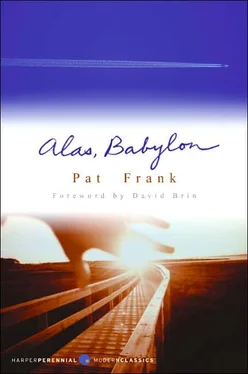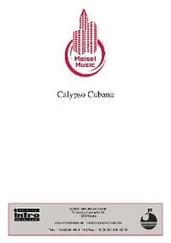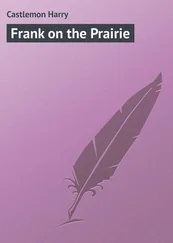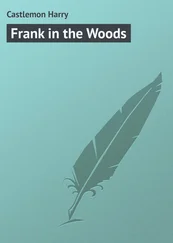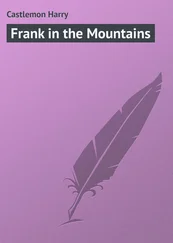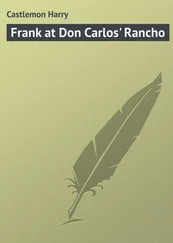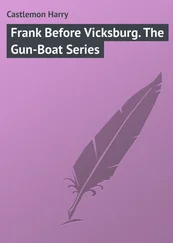Lib said, “That’s perfectly wonderful, Father!”
Bill said, hesitantly, “Only, if Dan’s asleep I don’t think we ought to disturb him, do you?”
“No, not tonight,” Lib said. She kissed her father, and she kissed her husband, and she went across the hall to her old room. Randy fell across the couch and slept. Presently Graf jumped up beside him and snuggled under his arm.
At noon Monday the man with the bat was hung from a girder supporting the bandstand roof in Marines Park. All the regular traders and a number of strangers were in the park. Randy ordered that the corpse not be cut down until sunset. He wanted the strangers to be impressed and spread the word beyond Fort Repose.
While he had not planned it, on this day he accepted the first enlistments in what came to be known as Braggs Troop, although in orders he called it the Fort Repose Provisional Company. Seven men volunteered that day, including Fletcher Kennedy, who had been an Air Force fighter pilot, and Link Haslip, a West Point cadet who had been home on Christmas leave on The Day. He created them provisional lieutenants of infantry. The other five were even younger—boys who had finished six months of Reserve training after high school or had been in the National Guard.
After the execution, Randy posted the notices he had typed earlier and brought to the park in his uniform pocket. The first read:
On 17 April the following highwaymen were killed on the covered bridge: Mickey Cahane, of Las Vegas and Boca Raton, a gambler and racketeer; Arch Fleggert, Miami, occupation unknown; Leroy Settle, Fort Repose.
On 18 April Thomas “Casey” Killinger, also of Las Vegas, and the fourth member of the band which murdered Mr. and Mrs. James Hickey and robbed and assaulted Dr. Daniel Gunn, was hung on this spot.
The second notice was shorter:
On 17 April Technical Sergeant Malachai Henry (USAF, reserve) died of a wound received on the covered bridge while defending Fort Repose.
Early in May a tube in the Admiral’s radio flared and died, cutting off the voice of the world outside. While these communications had always been sketchy, and the information meager and confusing, the fact that they were gone entirely was a blow to everyone. The Admiral’s short-wave receiver had been their only reliable source of news. It was also a fount of hope. Each night that reception was good some of them had gathered in the Admiral’s den and listened while he conned the wave lengths, hoping for news of peace, victory, succor, reconstruction. While they never heard such news, they could always wait for the next night with hope.
After consulting with the Admiral and the Henrys, Randy posted a notice on his official bulletin board in Marines Park. He asked a replacement for the tube and offered handsome payment—a pig and two chickens or a five-year file of old magazines. A proper tube never came in. Before The Day the Admiral had been forced to order replacement tubes directly from the factory in New Jersey, so he had not been optimistic.
Even had they been able to acquire a new tube, the radio could not have operated long, for the automobile batteries were depleted and it was in May that gasoline vanished entirely.
In June Preacher Henry’s corn crop ripened, the sweet yams swelled in the ground, and the first stalks of Two-Tone’s sugar cane fell to the machete. June was the month of plenty, the month in which they ate corn pone and hoe cake with molasses. In June they all fleshed out.
It was in June, also, that they ran their first batch of mash through the still built by Bill McGovern and Two-Tone. It was an event. After pine knots blazed for three hours under a fifty-gallon drum, liquid began to drip from the spout terminating an intricate arrangement of copper tubing, coils, and condensers. Two-Tone caught these first drops in a cup and handed it to Randy. Randy sniffed the colorless stuff. It smelled horrible. When it had cooled a bit he tasted it. His eyes watered and his stomach begged him not to swallow. He managed to get a little down. It was horrid. “It’s wonderful!” he gasped, and quickly passed the cup on.
After all the men had taken a swallow, and properly praised Two-Tone’s inventive initiative and Bill’s mechanical acumen, Randy said, “Of course it’s still a little raw. With aging, it’ll be smoother.”
“It ought to be aged in the wood,” Bill said. “Where will we get a keg?”
“It’ll be a cinch,” Randy said. “Anybody who has a keg will trade it for a couple of quarts after it’s aged.”
But for Dan Gunn, the corn whiskey was immediately useful. While he would not dare use it for anesthesia, he estimated its alcohol content as high. It would be an excellent bug repellent, liniment, and preoperative skin antiseptic.
One day in July, Alice Cooksey brought home four books on hypnotism, and presented them to Dan Gunn. “If you can learn hypnotism,” she suggested, “you might use it as anesthesia.”
Dan knew a number of doctors, and dentists too, who commonly practiced hypnotism. It had always seemed to him an inefficient and time-consuming substitute for ether and morphine but now he grasped at the idea as if Alice had offered him a specific for cancer.
Every night Helen read to him. She insisted on doing his reading, thus saving his eyes. They no longer had candles or kerosene but their lamps and lanterns burned furnace oil extracted from the underground tanks with a bilge pump. It was true that furnace oil smoked, and stank, and produced yellow and inefficient light. But it was light.
Soon Dan hypnotized Helen. He then hypnotized or attempted hypnosis on everyone in River Road. He couldn’t hypnotize the Admiral at all. He succeeded in partially hypnotizing Randy, with poor results, including grogginess and a headache. Randy attempted to cooperate but he could not erase everything else from his mind.
The children were excellent subjects. Dan hypnotized them again and again until he had only to speak a few sentences, in the jargon of the hypnotist, snap his fingers, and they would fall into malleable trance. Randy worried about this until Dan explained. “I’ve been training the children to be quick subjects, because in an emergency, they have their own built-in supply of ether.”
“And if you’re not around?”
“Helen is studying hypnotism too.” He was thoughtful. “She’s becoming quite expert. You know, Helen could have been a doctor. Helen isn’t happy unless she’s caring for someone. She takes care of me.”
A week later Ben Franklin developed a stomachache which forced him to draw up his right knee when he tried to lie down. The ache was always there and at intervals it became sharp pain enveloping him in waves. Dan decided Ben’s pain was not from eating too many bananas. It was impossible to take a blood count but the boy had a slight fever and Dan knew he had to go into him.
Dan operated on the billiard table in the gameroom, after putting Ben into deep trance. Dan used the steak knives, darning needles, hair curlers, and nylon line, all properly sterilized, and removed an appendix distended and near to bursting.
In five days, Ben was up and active. After that Randy, somewhat in awe, referred to Dan as “our witch doctor.”
In August they used the last of the corn, squeezed the last of the late oranges, the Valencias, and plucked the last overripe but deliciously sweet grapefruit from the trees. In August they ran out of salt, armadillos destroyed the yam crop, and the fish stopped biting. That terribly hot August was the month of disaster.
The end of the corn and exhaustion of the citrus crop had been inevitable. Armadillos in the yams was bad luck, but bearable. But without fish and salt their survival was in doubt.
Читать дальше
